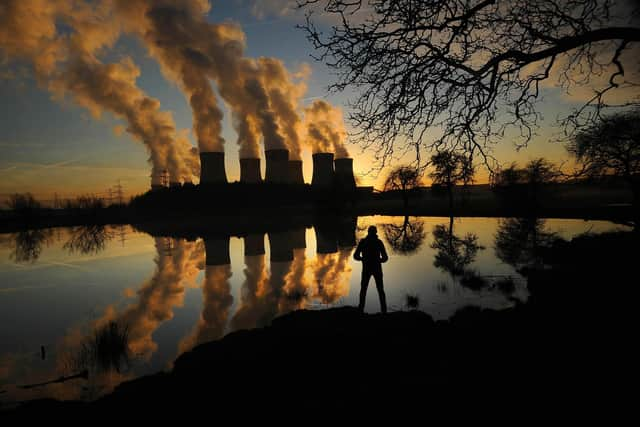The Government is making unrealistic assumptions about future technologies on decarbonisation - Chris Broome
In the case of climate change, our political leaders should be taking a much harder look at the range of solutions being proposed to achieve both decarbonisation and growth. This region looks set to become a testing ground for many of them, being home to many industrial areas including the biggest industrial cluster in the country on the Humber.
One of the technologies envisaged to play a major role is carbon capture and storage or CCS. It has been put forward as a means to decarbonise power stations, fuel production and various industrial processes.
Advertisement
Hide AdAdvertisement
Hide AdIt has never so far been used at scale in this country. A number of schemes have been designed and then abandoned from 2011 onwards, due to their cost and a lack of Government financial support.


Globally, very few projects have been successful, either commercially or in terms of meeting their design performance. Only a handful exist in the electricity generation and hydrogen production sectors, which are especially prominent in UK plans. Just a single project appears to be even close to meeting the carbon capture rate that would be required by all the plants here, if our net zero target is to be met.
The second part of the CCS story is how the associated residual emissions are offset. Fossil fuels will be used in many of the power stations and all the hydrogen plants which will require CCS plants.
The substantial emissions involved in extracting and transporting these will be added to by the uncaptured carbon dioxide from the CCS plants. Some offsets can be achieved by changes to land uses, including widespread tree planting, which is a positive and nature-friendly approach.
Advertisement
Hide AdAdvertisement
Hide AdBut the Government anticipates a bigger role for combining “sustainable” biomass power stations with yet more CCS plants to achieve “negative emissions”. It is questionable whether biomass other than waste products constitute a sustainable energy source at all. Energy crops will compete for land with food production and tree planting.
Drax Power Station in North Yorkshire is using imported wood. Its owners are currently making increasingly desperate and unconvincing claims that its supply is sustainably produced.
They are also seeking to secure more Government finance for a CCS plant, on the basis that this will enable the power station to become “carbon negative”. Their proposed CCS system is unproven and will face all the issues experienced by others globally.
There is of course plenty of positive work being carried out in this region and beyond on genuinely renewable technologies. But the point here is that the Government is making unrealistic assumptions about future technologies in seeking to devise a credible strategy to decarbonise the whole economy. It cannot avoid resorting to this whilst growth in our collective consumption continues.
Advertisement
Hide AdAdvertisement
Hide AdWe need to learn to live within the limits of the technological advances we can have justifiable confidence in and of the natural world we inhabit.
Chris Broome is a campaigner with South Yorkshire Climate Alliance.